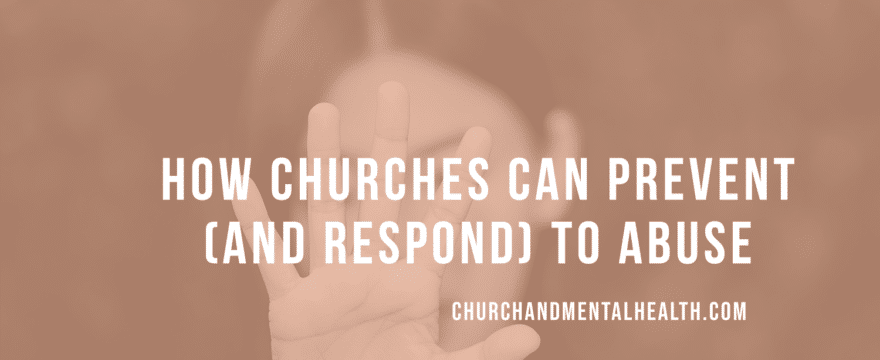The church is called to be a place of refuge, healing, and truth. Unfortunately, abuse—whether physical, emotional, spiritual, or sexual—can occur within faith communities. As pastors and church leaders, we have a biblical and ethical responsibility to protect the vulnerable, prevent harm, and respond appropriately when abuse is disclosed.
Understanding the Church’s Role in Abuse Prevention
Scripture calls us to protect and care for the most vulnerable among us:
- “Defend the weak and the fatherless; uphold the cause of the poor and the oppressed.” (Psalm 82:3)
- “Whoever welcomes one such child in my name welcomes me.” (Matthew 18:5-6)
Churches should be safe places, but predators often seek positions of trust where they can exploit others (Boz Tchividjian, Predators in the Pew). Therefore, prevention must be a top priority.
How Churches Can Prevent Abuse
1. Implement Thorough Screening and Training
One of the most effective ways to prevent abuse is by carefully screening all staff and volunteers. Background checks alone are not enough; churches should also conduct thorough interviews, check references, and look for any red flags in applicants. Additionally, every staff member and volunteer should complete mandatory abuse prevention training, such as MinistrySafe or Darkness to Light, to learn how to recognize grooming behaviors and warning signs of abuse.
Training should be renewed regularly to keep awareness high. Do not assume that nothing has changed because someone passed the screening once. One standard for some churches is every 3 to 5 years, with all staff and volunteers recertifying throughout the process. Many children’s ministries may require it as frequently as 1 year. There have been some complaints about the cost and hassle, but the peace of mind for parents, the reduced liability for the church, and ultimately, the safety of the children is worth the cost.
2. Establish and Enforce Strong Policies
Having clear policies in place is essential for preventing abuse. A two-adult rule, which ensures that no child or vulnerable adult is left alone with a single volunteer, is a critical safeguard. Many churches will go so far as to apply this rule to any church staff member as well. Additionally, churches may implement strict guidelines for counseling sessions, ensuring that meetings occur in visible, open areas or offices with windows. It is also essential to have a mandatory reporting policy outlining the immediate steps to take if abuse is suspected. These policies must be written, easily accessible, and consistently enforced to be effective.
3. Create a Culture of Accountability
Church leaders must foster a culture where accountability is encouraged and expected. This means having regular discussions about abuse prevention from the pulpit, in staff meetings, and training sessions. Transparency is key—if church members see that leadership takes safety seriously, they will be more likely to report concerns and seek help when needed.
4. Empower Victims to Speak Up
Abuse often thrives in silence, so churches must create an environment where victims feel safe coming forward. Confidential reporting channels, such as an anonymous hotline or designated pastoral care or church mental health team, can encourage disclosures. Preaching on biblical justice and God’s heart for the oppressed can also signal to survivors that they are valued and heard. Victims should never be pressured to reconcile with their abuser or forgive prematurely; instead, they should be met with compassion, support, and access to professional counseling services.
How Churches Should Respond to Abuse Allegations
1. Believe and Support the Victim
When a victim discloses abuse, the church’s first response should be to believe them. Studies show that false accusations of abuse are rare, and a dismissive or skeptical response can cause further harm. Victims need to know they are heard, supported, and safe. Churches can offer trauma-informed care training for volunteers and staff or to the community, including counseling resources and spiritual support while ensuring that victims are not pressured to minimize their experience.
2. Report to Authorities Immediately
It is not the church’s role to determine whether an abuse allegation is valid—that responsibility belongs to law enforcement and child protective services. Churches must follow legal and ethical mandates to report suspected abuse immediately. (We’ve discussed numerous times about abuse to adults, the role pastors should take to support victims, and promoting awareness of child abuse from the basis of the church.) Church leaders should familiarize themselves with state and local reporting laws and have a clear, written procedure for making reports. (Note: our Mandatory Reporting eBook helps you with ALL of this)
3. Remove the Accused from Ministry During Investigation
If the accused is a church leader or volunteer, they should be placed on leave from ministry while an investigation is conducted. This is not an assumption of guilt but a necessary step to ensure the safety of others. Too often, churches prioritize protecting their reputation over protecting victims, which leads to further harm and potential legal consequences. Transparency is crucial—church members should be informed (without disclosing sensitive details) that the matter is handled seriously and appropriately. Further, a church investigation of mandatory reporting is insufficient, and in many states, the senior leadership and the church as a whole can be sued and prosecuted. Make sure to contact the police when appropriate.
4. Offer Long-Term Support
Abuse recovery is not a one-time event; it is a long journey. Churches must be prepared to walk alongside victims for months or even years, providing emotional, spiritual, and practical support. This might include covering counseling costs, creating support groups, or partnering with Christian trauma recovery ministries. Healing also extends to the congregation—when abuse is uncovered, the church community may need pastoral guidance to process their emotions and reaffirm their commitment to safety and justice.
Preventing and responding to abuse in the church requires vigilance, courage, and compassion. As pastors, we must follow Christ’s example of protecting the vulnerable and standing for justice. By implementing strong policies, fostering accountability, and prioritizing victims’ well-being, we can create safer churches that truly reflect the love of God.
